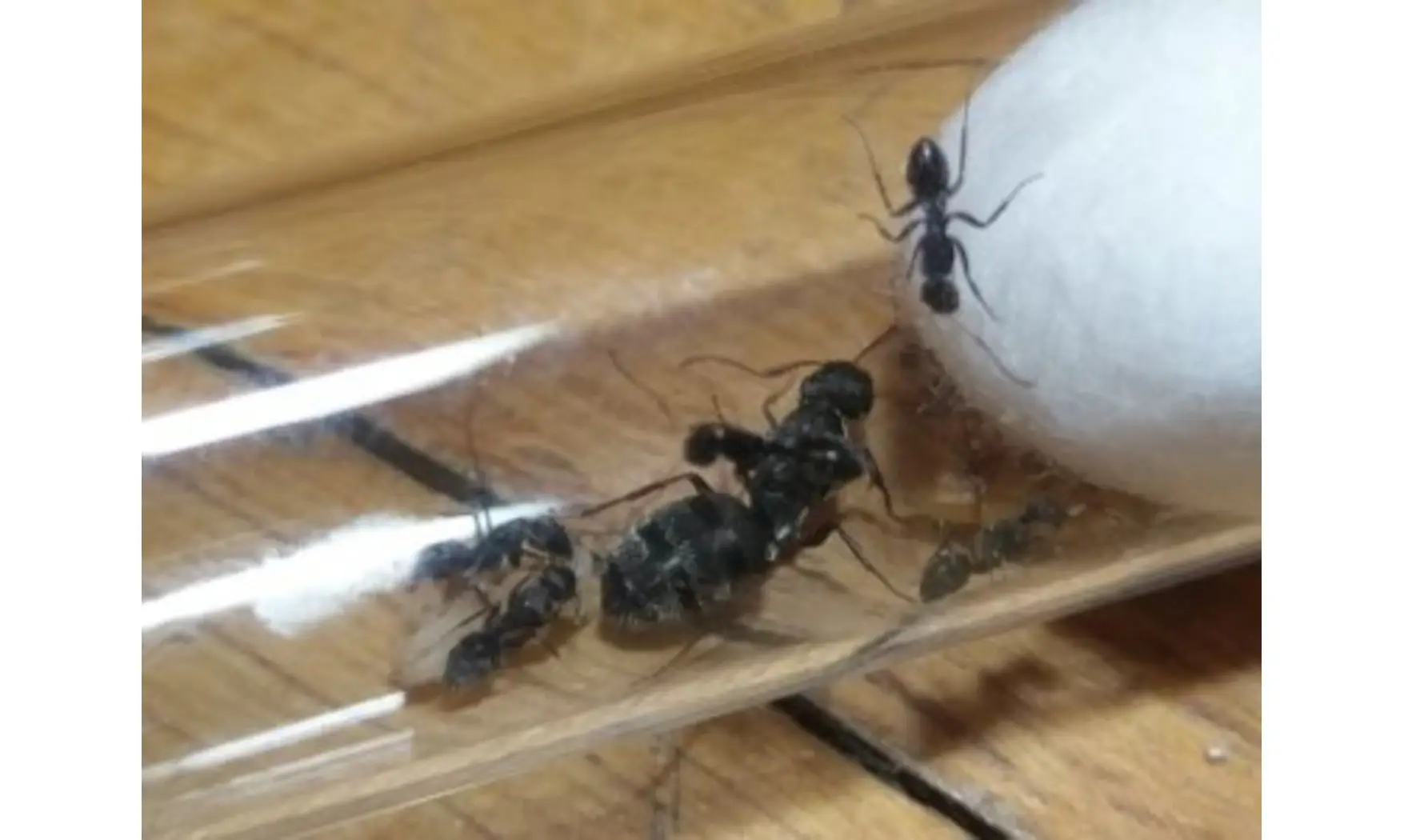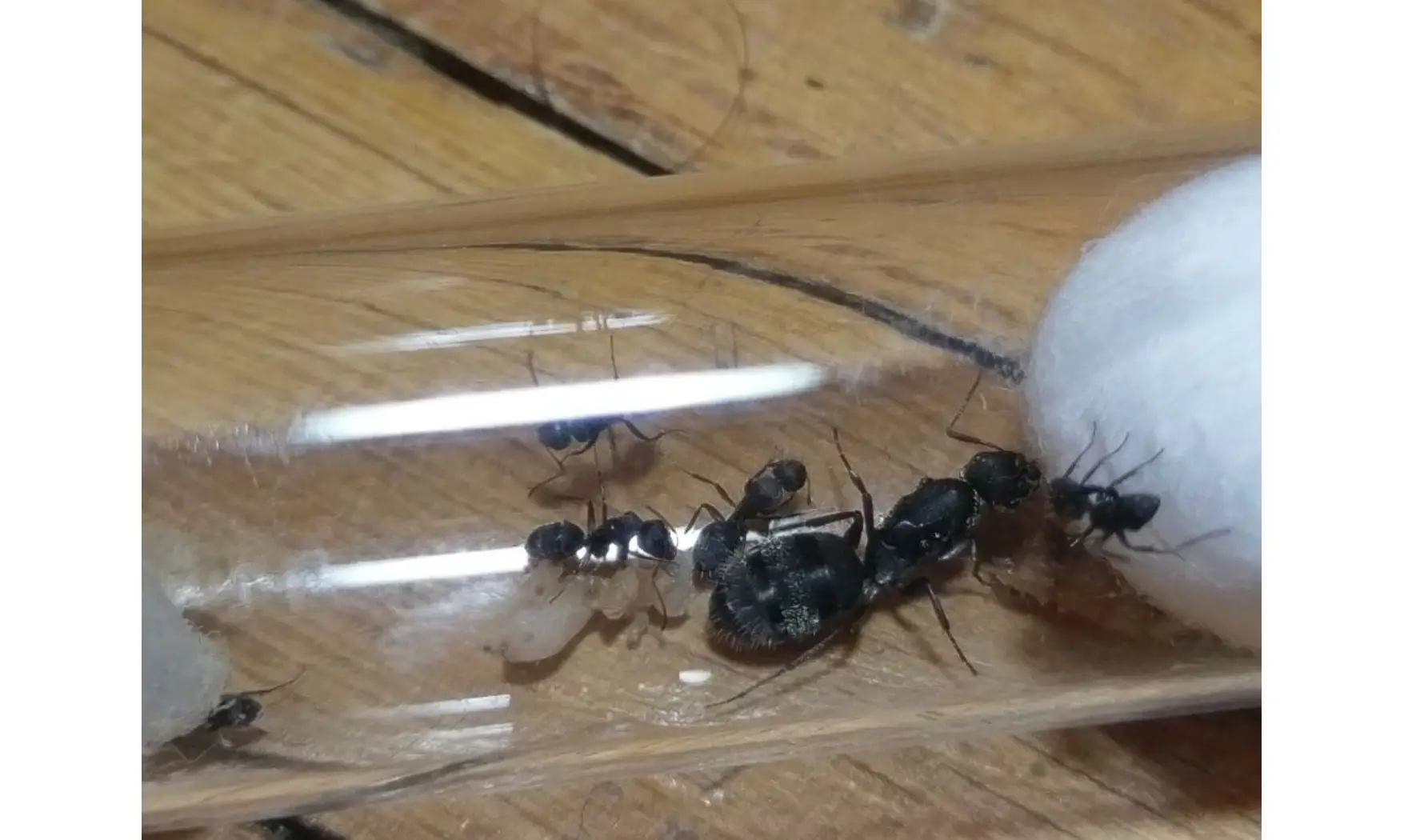





Camponotus grandidieri
Reference : CFOUR-033
79.90€
0 in stock
Latin name: Camponotus grandidieri
Taxonomy: Subfamily: Formicinae, Tribe: Camponotini
Breeding level: Beginner, just provide a good temperature
Geographical distribution: South Africa
Habitat: Steppes and favorite semi-deserts
Colony form: Monogyne
Queen: Size: 12 - 13mm Color: head and thorax black masts and gastre with silvery reflections
Worker: Size: 4 - 7mm Color: black head and thorax masts and gastres with silvery reflections
Major: Size 9 - 11mm Color: head and thorax black masts and gastre with silvery reflections
Male: Size: 7mm Color: Black Mast
Food: Honeydew and insects: like flies, mealworms, mosquitoes and small crickets; also fruits
Humidity: Hunting area: 30 - 50% Nest: 50 - 60%
Temperature: Hunting area: 20 - 32 ° C Nest: 24-28 ° C
Hibernation: No
Nest type: All types of nests will suit them, tube foundation with water reserve and then dry nest with a trough in the hunting area.
Description: Camponotus grandidieri is a beautiful and very prolific species with very beautiful color.
Development: Swarming from November to January
Foundation: Set in a cloister (without food) Development: 30 days from egg to worker (depending on temperature)
Size of the colony: 15,000 individuals, the queen can reach the age of 20 years .
Taxonomy: Subfamily: Formicinae, Tribe: Camponotini
Breeding level: Beginner, just provide a good temperature
Geographical distribution: South Africa
Habitat: Steppes and favorite semi-deserts
Colony form: Monogyne
Queen: Size: 12 - 13mm Color: head and thorax black masts and gastre with silvery reflections
Worker: Size: 4 - 7mm Color: black head and thorax masts and gastres with silvery reflections
Major: Size 9 - 11mm Color: head and thorax black masts and gastre with silvery reflections
Male: Size: 7mm Color: Black Mast
Food: Honeydew and insects: like flies, mealworms, mosquitoes and small crickets; also fruits
Humidity: Hunting area: 30 - 50% Nest: 50 - 60%
Temperature: Hunting area: 20 - 32 ° C Nest: 24-28 ° C
Hibernation: No
Nest type: All types of nests will suit them, tube foundation with water reserve and then dry nest with a trough in the hunting area.
Description: Camponotus grandidieri is a beautiful and very prolific species with very beautiful color.
Development: Swarming from November to January
Foundation: Set in a cloister (without food) Development: 30 days from egg to worker (depending on temperature)
Size of the colony: 15,000 individuals, the queen can reach the age of 20 years .

